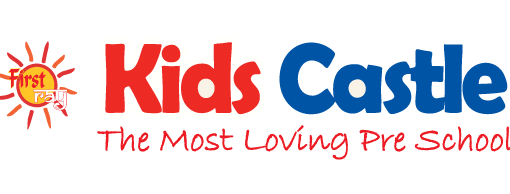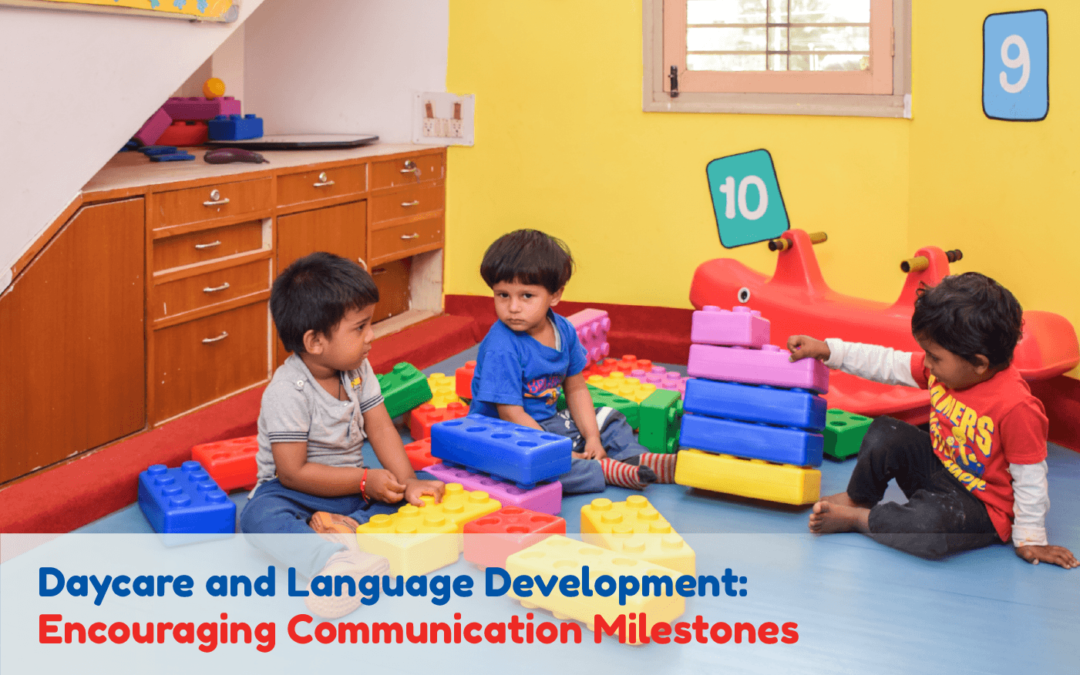How can your child’s early education environment facilitate the development of language skills?
This blog will discuss what you need to know about early learning programs, language development, and the toddler and preschool age groups if your child is enrolled in a daycare center.
What is Language development, and what to expect?
Similar to other areas of development, your child will acquire language skills as they grow up. Experts say a child’s first three years are the most important for speech and language development.
Before your child can speak, they will begin communicating. Even though we often use the term language in place of speech, the language includes the spoken word. Language development includes speech and nonverbal communication, such as body language, listening, and comprehension.
Infants cry, string sounds together, coo, and may even attempt to imitate sounds or words from older children or adults. Most children may use simple phrases and ask two-word questions by 18 to 24 months.
Language development in the preschool years involves the formation of complex skills. A child between the ages of three and four can use most speech sounds, identify objects, express some ideas or emotions, and respond to and repeat questions.
As your child nears age five, they may have the language skills to understand complex questions, correctly pronounce long words, describe objects they observe, respond to ‘why’ questions, understand rhyming, and compose longish sentences.
How do children acquire language skills?
Child language development happens one step at a time. This means that your child will acquire skills through a series of increasingly complex steps, such as uttering the first word or speaking in multi-word sentences; these may vary from child to child.
Children develop these abilities in numerous ways. Interactions with others give toddlers and preschoolers meaningful opportunities to develop speech and communication skills. Through child-to-child or adult-to-child interactions, children can learn how to speak and develop the ability to listen and understand.
The more opportunities your child has to speak, listen, and use language in non-verbal ways (such as gestures), the more skills they will develop. These opportunities include talking with your child at home and formal school instruction.
How can daycare centers aid your child’s language development?
In addition to interactions and activities at home, your child can acquire new language skills (i.e., speaking and listening) during daycare. Again, all language-based interactions allow young children to develop these skills. Your child’s brief conversations with other students, more extended conversations with a teacher, and question-and-answer sessions based on activities can all contribute to their language development.
Along with informal language-building exchanges, specially designed activities can also help your child to improve these skills. These may include story time, dramatic play, sing-alongs, fingerplays, and lessons- and content-related discussions (such as painting, drawing, or science experiments).
Conclusion:
Talk to the teacher to learn more about the language-building activities in your child’s daycare center. The early childhood educator can provide specifics on activities and explain how they relate to your child’s language development. The new teacher for your child may also provide you with some tips or ideas to implement at home.
Is your child prepared for the daycare center or preschool? Contact Kids Castle Preschool and Daycare Center in Bangalore for further details.
Please subscribe to our YouTube channel.

